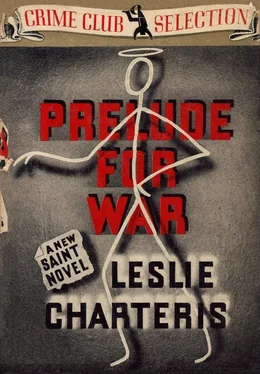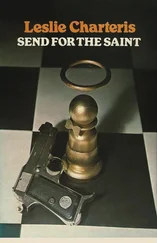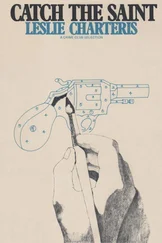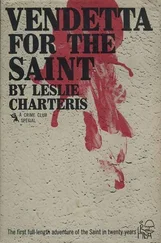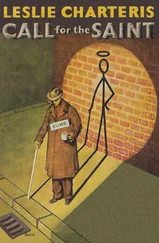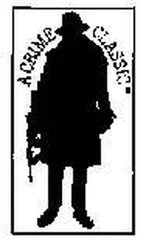God who in His infinite wisdom has ordained that all respectable English citizens shall go for their holidays to the same places at the same time chose that moment to let a fresh horde of tourists loose in the station. Hot, sun blistered, multitudinous, clutching their bags and parcels and souvenirs and progeny, they swarmed around the Saint and swallowed him up. Simon had never been glad of such inundations before, but he was so grateful for that one that he could have embraced each individual member of the motley mob. He let himself be carried along by the spate of humanity, and it held him in its midst and swept him through the exit he had been making for, and the rearguard jammed in the doors behind him with a hearty unanimity that could scarcely have impeded pursuit more effectively if it had been organized.
Simon did not wait to see what happened. Perhaps the detective who had seen him was still not certain of his identification; perhaps he had at last made up his mind and was even then trying to struggle through the crowd; but in either event the Saint had no desire to linger. As soon as he was outside he set off at the speed of a racing walker, and felt as if he only began to breathe again when he had crossed Eastbourne Terrace with no sounds of a hue and cry behind him.
His taxi driver was still optimistically waiting, and he opened the nearest door as he saw the Saint approach.
Simon smiled and shook his head.
"Sorry," he said, "but I just came to tell you you needn't wait any more."
"Orl right, guv'nor."
The driver looked dejected.
Simon tucked a ten-shilling note into the front of his coat.
"On your way. And have a drink with me when they open."
"That I will, guv'nor," said the man less glumly. "And I 'opes I see you again."
The Saint stood on hot bricks until the cab turned the next corner and passed out of sight.
Then he got into the driving seat of the Daimler.
It was his own car, anyway, although the taxi driver might not have appreciated that. And by the grace of good angels it was a car that he had always used for various nefarious purposes, and therefore it had been registered in a number of different names but never in his own. It was one car whose number plates the mobile police would not be watching for. Perhaps more cogently than any of those things, it was the only car at his immediate disposal. It was not what he would have chosen for what he had to do, but he could not choose.
Lady Valerie had left the keys in the switch and the engine was nicely warm. The Saint was away in four seconds after his taxi disappeared.
And on a trip like he had to make every second was vital. And he had to waste precious scores of them, feeling his way westwards out of London by devious and unfrequented back streets. The same dogged efficiency that had covered the railway stations was sure to have stationed watchers on the main traffic arteries leading out of London, but the labyrinthine ways of London and its suburbs are so many that it would have been impossible to cover every outlet. And Simon Templar had an encyclopedic memory for maps that would have staggered a professional cartographer. It was a gift that he had developed and disciplined for years against just such contingencies as this. He drove through back streets and suburban avenues and afterwards through country lanes, and did not join a main road until he came into Bracknell.
Then he gave the Daimler its head to the last mile an hour that could be squeezed out of it.
He drove with one eye on the road and the other switching between the speedometer and the dashboard clock. To race an express train in the Hirondel was nothing, but to attempt it in that sedate and dowager-worthy limousine was something else. Mathematically it came out to be simply and flatly impossible. But Anford was a one-horse village on an antiquated single-track branch line over which trains shuttled back and forth with no great respect for timetables and never at even official intervals of less than an hour. The odds were all against Lady Valerie catching an immediate connection; and that uncertain margin of delay at Marlborough was all that the Saint could hope to race against.
A few days ago he had taken the Hirondel from Anford to London in an hour and twenty-five minutes. Risking his neck at least once in every two miles, he stopped the Daimler at Anford Station in three minutes under two hours.
He jumped out and went in.
It took him a little while to find a timetable. Eventually he located one, pasted to a board on the wall and smudged and roughened with the trails of many grubby fingers that had painstakingly traced routes across its closely printed acreage before him. With difficulty he analyzed the eye-aching maze of figures with which railway companies strive so nobly to preserve the secret of their schedules. The train which Lady Valerie had caught should have reached Marlborough thirty-five minutes ago; and there was a connection to Anford listed for three minutes later.
Simon searched the deserted premises and presently found the stationmaster weeding his garden.
"When does the next train from Marlborough get in?" he asked.
"The nex' train, sur? Urse been in already."
"What's that?"
The stationmaster pounced on a weed.
"I said, urse been in already."
"I mean the train that left Marlborough at four o'clock."
"Urse been in."
"But it couldn't!" protested the Saint. "It's never done that trip in forty minutes in its life!"
The stationmaster bristled.
"Well, urse done it today," he stated with justifiable pride.
"What time did it get in?"
"I dunno."
"But surely—"
"No, I dunno. It was five minutes ago be the clock, but the clock ain't been keepin' sich good time since we took the bird's nest outen ur."
"Thank you," said the Saint shakily.
"You're welcome, sur," said the stationmaster graciously, and resumed his weeding.
The Saint ploughed back through the station on what seemed to be lengthening into an endless pilgrimage. In the station yard he found a new arrival, in the shape of an automobile of venerable aspect against which leaned a no less venerable man in a peaked cap with a clay pipe stuck through the fringe of a moustache that almost hid his chin. Simon went up to him and seized him joyfully.
"Did you just pick up a young lady here — a dark pretty girl in a light-blue suit?"
The man cupped a hand to one ear.
"Pardon?"
Simon repeated his question.
The driver sucked his pipe, producing a liquid whistling noise.
"Old lady goin' on fifty, would that be?"
"I said a young lady — about twenty-five."
"I 'ad a young lady larst week—"
"No, today."
"No, Thursday."
"Today."
The man shook his head.
"No, I ain't seen 'er. Where does she live?"
"I want to know where she went to," bawled the Saint. "She got here on the last train. She may have taken a cab, or somebody may have met her. Did you see her?"
"No, I didn't see 'er. Mebbe Charlie seed 'er."
"Who's Charlie?"
"Yus."
'Who's Charlie?"
"There ain't no need to shout at me," said the driver resentfully. "I can 'ear perfickly well. Charlie 'as the other taxi around 'ere. This 'll be 'im comin' along now."
A noise like a threshing machine had arisen in the distance. It grew louder. With a clatter like a dozen milk cans being shaken together in an iron box another venerable automobile rolled into the yard, came to a halt with a final explosion like a pistol shot and stood there with its nose steaming.
"Oi," said the Saint's informant. "Charlie."
A very long man peeled himself out of the second cab and came over. He had two large front teeth like a rabbit, and one of his eyes stared at the bridge of his nose.
Читать дальше
